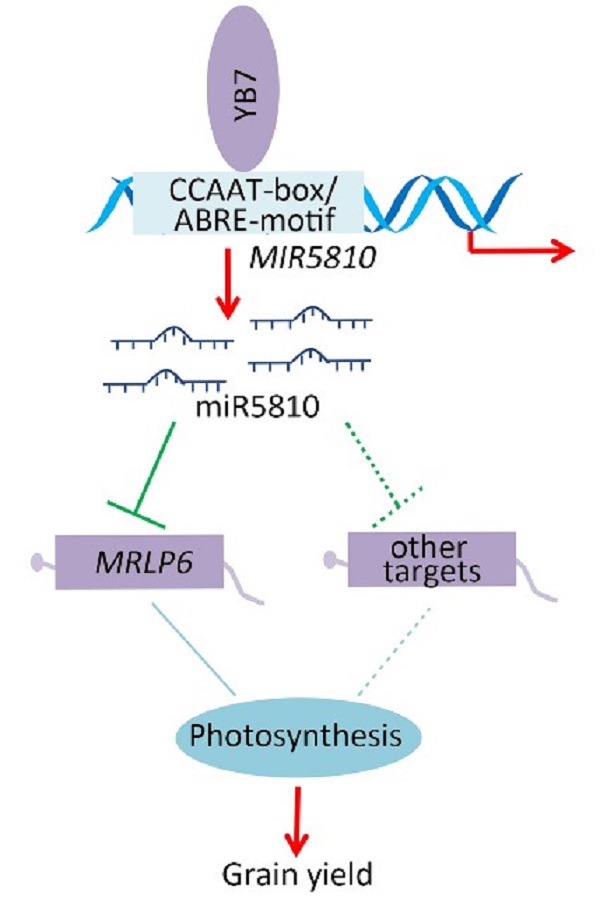

Increasing rice yield is a target of rice breeding, and improving photosynthetic efficiency has the potential to increase crop yields and reduce food shortages. MicroRNAs (miRNAs) function in development and in response to biotic and abiotic stresses, but little is known their roles in regulating rice photosynthesis.
Dr. Weiwei Gao et al. (2023) from South China Botanical Garden of the Chinese Academy of Sciences have reported the role of the OsNF-YB7–OsMIR5810–OsMRLP6 module in mediating photosynthesis and yield of rice. The malectin-like protein gene OsMRLP6 was identified as a target gene of osa-miR5810 (miR5810). Overexpression in rice of miR5810 or down-expression of OsMRLP6 resulted in reduced expression of genes involved in chloroplast development and photosynthesis and decreased net photosynthetic rate, finally leading to lower shoot biomass and grain yield. Down-expression of miR5810 and overexpression of OsMRLP6 showed the opposite effect. Overexpression of transcription factor OsNF-YB7 elevated expression of OsMIR5810 in rice seedlings by binding to its promoter. Haplotype analysis indicates that the promoter of OsMIR5810 has been artificially selected during the rice breeding process. The OsNF-YB7-miR5810/OsMRLP6 module provides a new genetic pathway for high photosynthetic breeding in rice.
This work has been online published in The Crop Journal (https://www.sciencedirect.com/science/article/pii/S2214514123001149). The study was supported by the National Natural Science Foundation of China (32171933) and the Guangzhou Science and Technology Project (202102021003/2023B03J0742).

Fig. Working model of OsNF-YB7–MIR5810–OsMRLP6 module functioning in regulating grain yield by affecting photosynthesis of rice seedlings

